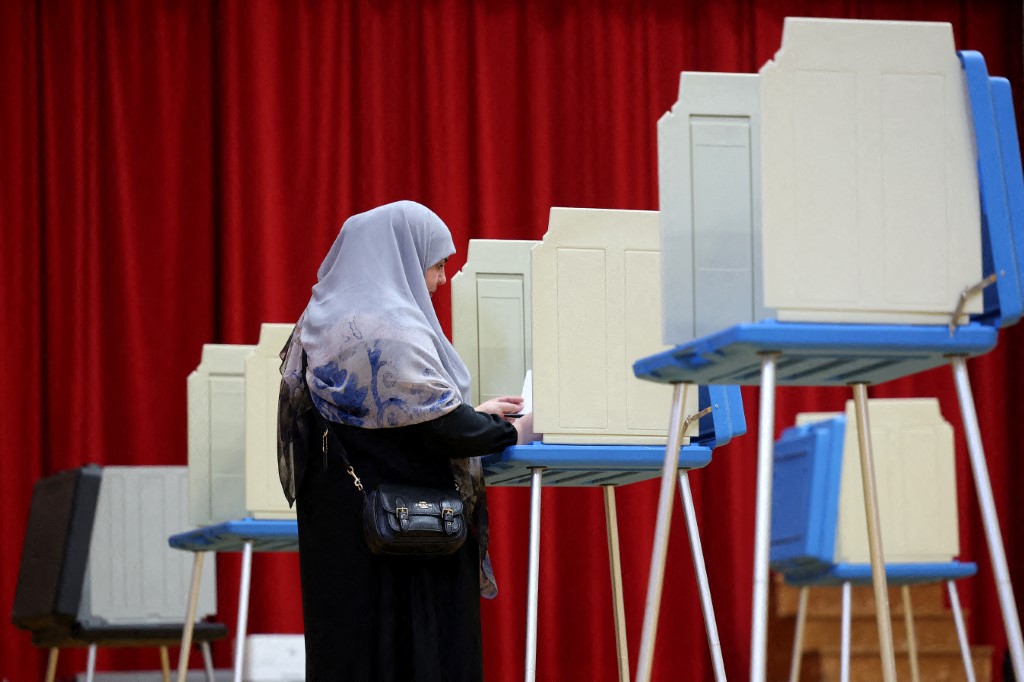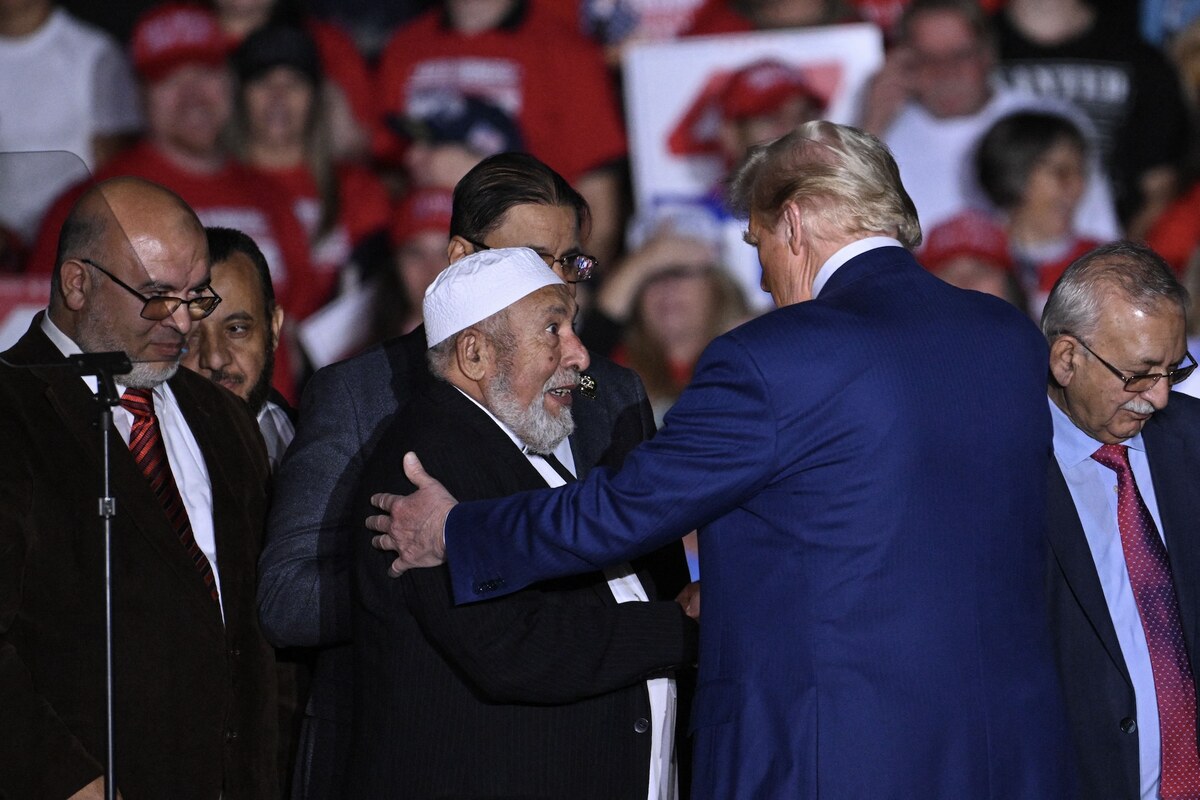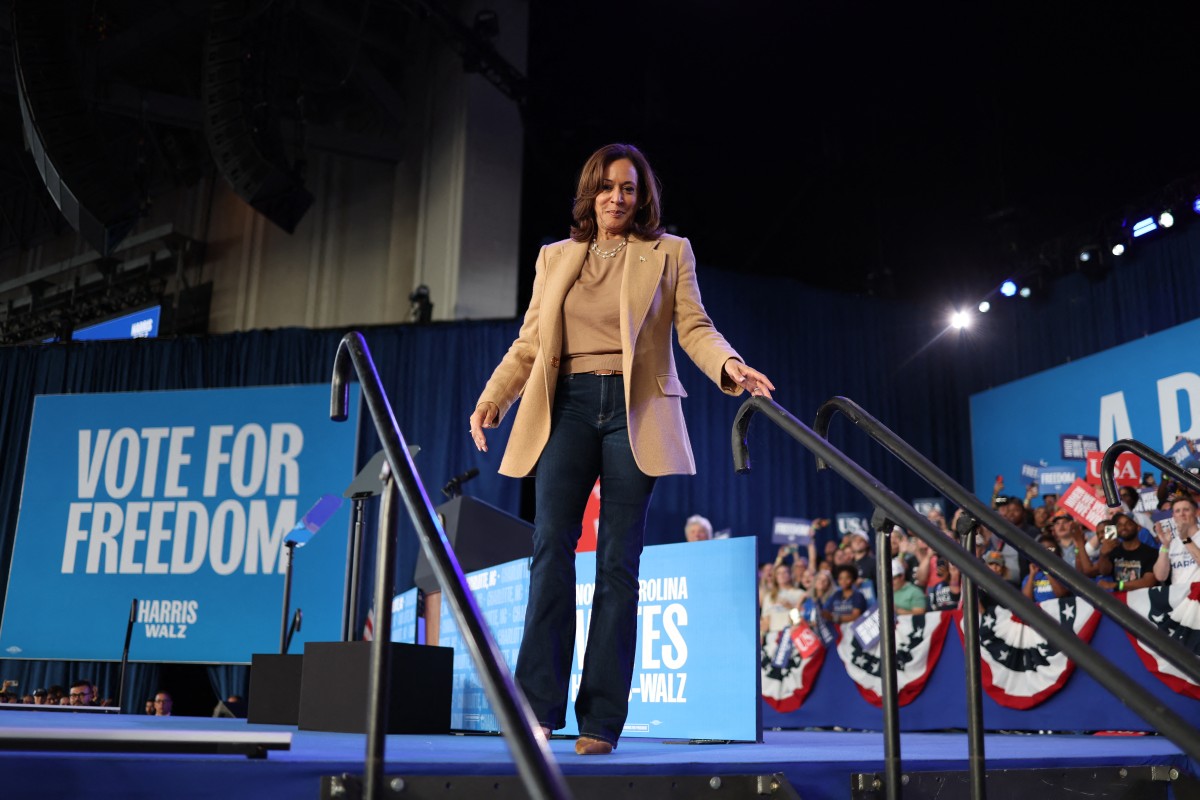CHICAGO: Donald Trump and Kamala Harris, the two major political party candidates, have secured endorsements from prominent Arab and Muslim community leaders in Michigan, a key battleground state that could determine the outcome of the upcoming US presidential election.
A recent Arab News/YouGov poll has shown Trump and Harris in a tight race among Arab American voters, while third-party Green candidate Dr. Jill Stein has also drawn significant support, largely due to her stance on the Gaza conflict, in a bid to capture 5 percent of the vote, enough to qualify the Green Party as a major political party in future elections.
Arab and Muslim Americans endorsed Trump at a rally in Novi, Michigan, on Oct. 25, while Harris received the community’s support in Dearborn on Oct. 26.
Appearing on “The Ray Hanania Radio Show” on Thursday, representatives of both camps argued that their candidate was better equipped to end conflicts in Gaza and Lebanon, which the Arab News/YouGov poll identified as critical issues for Arab Americans in the Nov. 5 election.

Arab and Muslim Americans endorsed Trump at a rally in Novi, Michigan, on Oct. 25, while Harris received the community’s support in Dearborn on Oct. 26. (AFP)
“People have said, well, (former) President Trump talked about a Muslim ban. President Trump is no longer talking about a Muslim ban. President Trump moved the (US) Embassy to Jerusalem. It’s a plaque that was moved; it was not the 43,000 Palestinians who have been killed at the hands of Israel with arms provided by the US,” said Dr. Bishara Bahbah, a former Democrat who helped organize pro-Trump rallies in swing states like Michigan.
Criticizing the Biden administration’s policies, Bahbah argued that the current support for Israel would continue under Harris, suggesting that her presidency would lead to more civilian deaths and destruction in Gaza and Lebanon.
“That is unacceptable. The Biden administration’s policies will continue, and we will see Israel doing whatever the hell it wants to do against our people,” Bahbah added.
The Biden administration has faced mounting criticism from Arab Americans and the international community over its military and financial support for Israel, which critics argue has fueled escalating violence that has left close to 50,000 dead across Gaza, Israel, and Lebanon, along with widespread displacement and injury. Washington has also been accused of failing to effectively leverage its diplomatic influence to secure a much-needed ceasefire.
Reflecting this perceived policy gap, US Secretary of State Antony Blinken said on Thursday that “good progress” had been made toward a ceasefire deal in Israel’s offensive against Lebanon. However, Lebanese Prime Minister Najib Mikati cautioned on Friday that Israel’s “renewed expansion” of attacks could derail any potential truce efforts, indicating resistance to a diplomatic resolution despite over a month of war.

Trump greeted his Arab and Muslim supporters at the rally, expressing confidence that they could “turn the election one way or the other.” (AFP)
Bahbah believes the Gaza and Lebanon conflicts reflect weak leadership on the part of President Joe Biden and Vice President Harris, who assumed the Democratic nomination in August.
“You (Arabs and Muslims) have a choice between a Harris administration that’s going to continue killing our people, or you have a choice to vote for Trump, who has told us, me personally as well, that he wants to stop the wars immediately,” Bahbah said adding that the former president is committed “to lay the groundwork for lasting peace agreements in the Middle East that are satisfactory to all parties in the region.”
Arab and Muslim mayors, including Amer Ghalib of Hamtramck and Bill Bazzi of Dearborn Heights, joined Trump’s endorsement in Novi, Michigan, on Saturday, highlighting Trump’s outreach to these communities and his potential impact in the swing state.
Trump greeted his Arab and Muslim supporters at the rally, expressing confidence that they could “turn the election one way or the other.” At the same event, Imam Belal Alzuhairi endorsed Trump as a “peacemaker,” echoing Bahbah’s view that Trump is better positioned than Harris to “bring peace to the Middle East.”
This sentiment aligns with Arab News/YouGov poll findings that indicate many Arab Americans see the former president as more capable of addressing the Israel-Palestine conflict.
Meanwhile, in Dearborn, Michigan, on Sunday, a dozen Arab and Muslim community leaders held a press conference to endorse Harris, including Ismael Ahmed, a co-founder and former director of the influential Michigan-based social services organization ACCESS.
Ahmed cited the ongoing violence in Gaza and Lebanon as key to their support for Harris, noting her recent hints at diverging from the current administration’s approach and supporting a shift in US policy toward implementing a two-state solution.

Many prominent Arab American Democrats have refused to endorse the Democratic ticket this year, pressing Harris and Biden to adopt a more assertive stance toward Israel (AFP)
“The horror is true for all of us, all Americans. And we want it to end. We want to cease fire. We want equity for the Palestinians, a Palestinian state. And we want to live side by side with Jews and Israelis in particular,” said Ahmed who was joined by Arab American Institute President Jim Zogby and Deputy Wayne County Executive Assad I. Turfe on the show.
“They’ve suffered loss, too. And our heart goes out to them as well. We need peace,” he said, adding that “all of us, no matter who we are supporting for the elections, have been working hard to make that happen” and that the uncommitted movement has been a reaction to bring more attention and to force more movement on the issue.
Many prominent Arab American Democrats have refused to endorse the Democratic ticket this year, pressing Harris and Biden to adopt a more assertive stance toward Israel, including a ceasefire in the Israel–Hamas conflict and an arms embargo.
The Uncommitted National Movement, a group of disenchanted Arab American Democrats, said it will not endorse Harris, citing disappointment with her response to community requests for a meeting with Palestinian families in Michigan. Reflecting the ambivalence many Arab Americans feel about their options, the Uncommitted National Movement also warned against a Trump presidency, which it claims would intensify military action in Gaza and increase suppression of anti-war efforts.
“Frankly speaking, Kamala Harris has been more sympathetic. We believe that’s real, but there’s been very little put on the table,” Ahmed said. “But when you match that to what Donald Trump is saying, he’s called for a Muslim ban, which he says he will reinstate the very first day he is in office. He’s called for internment camps. And none of us can have doubts that we’re one of the groups that will end up in those internment camps.”
Ahmed, an associate provost at the University of Michigan at Dearborn and former director for the Michigan Department of Human Services, warned that Trump’s stance on immigration and close alliance with Israel would pose significant risks to the community.
“(Trump) has called for the arrest and deportation by the military of 11 million immigrants. Some of them are our families. They’re mostly hardworking and contributing to the economy. In fact, our economy wouldn’t function without them. And on Palestine, Donald Trump opposes a Palestinian state, (he) has called for Netanyahu to continue his bloody approach to the war until victory, whatever that is. And I can go on.”
Until then, the Harris campaign had been unsuccessful in winning public endorsements from the Arab and Muslim leaders because of community criticism of her failure to stop Israel’s concurrent military operations in Gaza and Lebanon.
Michigan, a swing state that Trump won in 2016 and Biden narrowly captured in 2020, could once again play a decisive role in the election. Of more than 5.5 million votes cast in Michigan in 2020, Biden led by fewer than 155,000 votes. With more than 200,000 Arab Americans living in the state, their vote could be pivotal this November.
“The Ray Hanania Radio Show” airs every Thursday at 5 PM on Michigan’s WNZK AM 690 radio and rebroadcasts Mondays at 5 PM on the US Arab Radio network, sponsored by Arab News. For more information on the show or to listen to the podcast, visit ArabNews.com/rayradioshow.

























